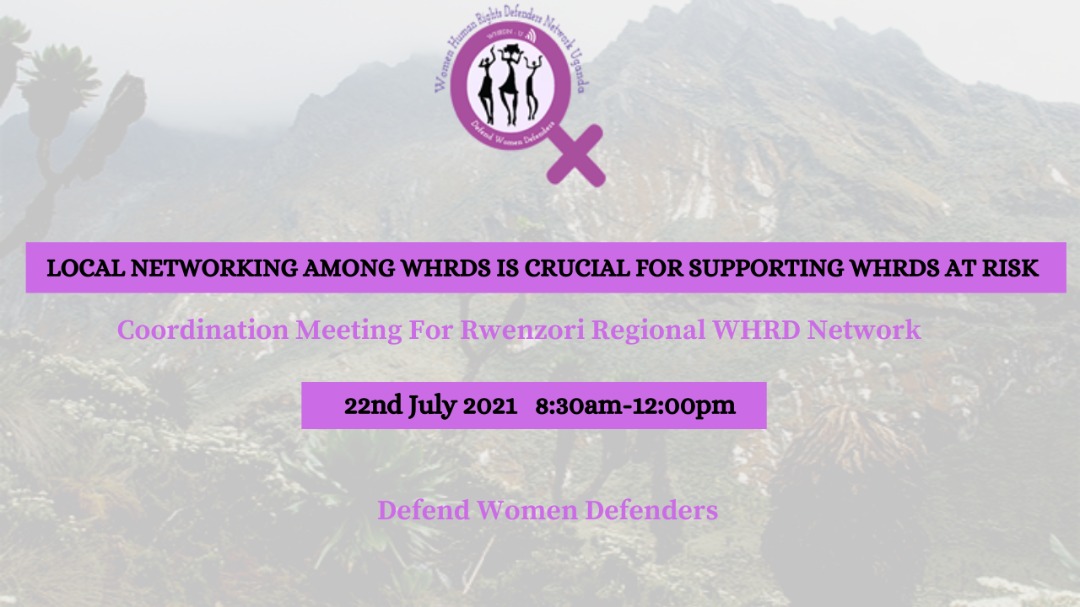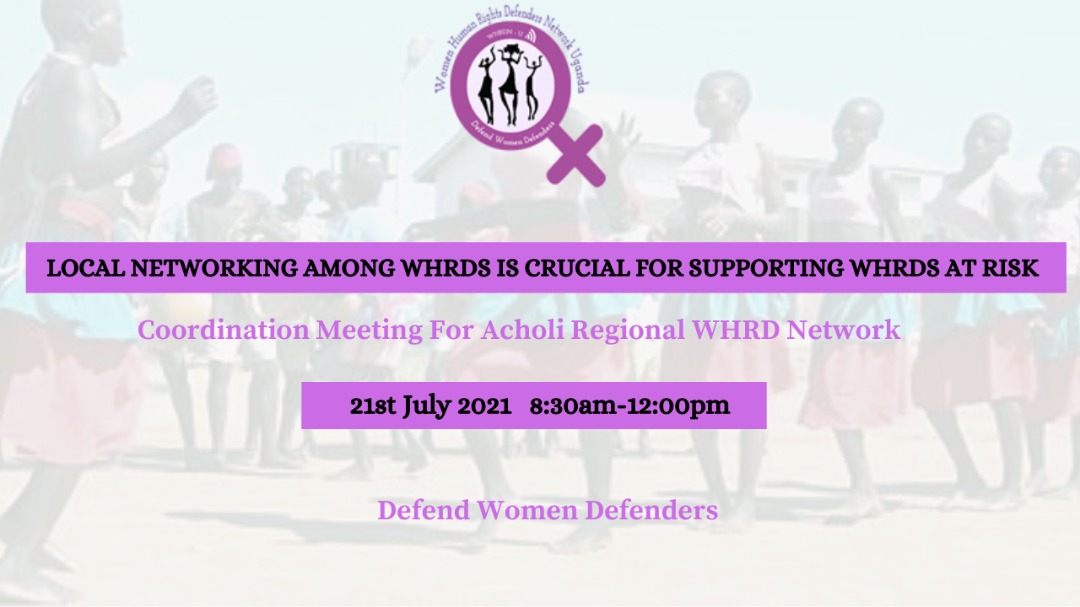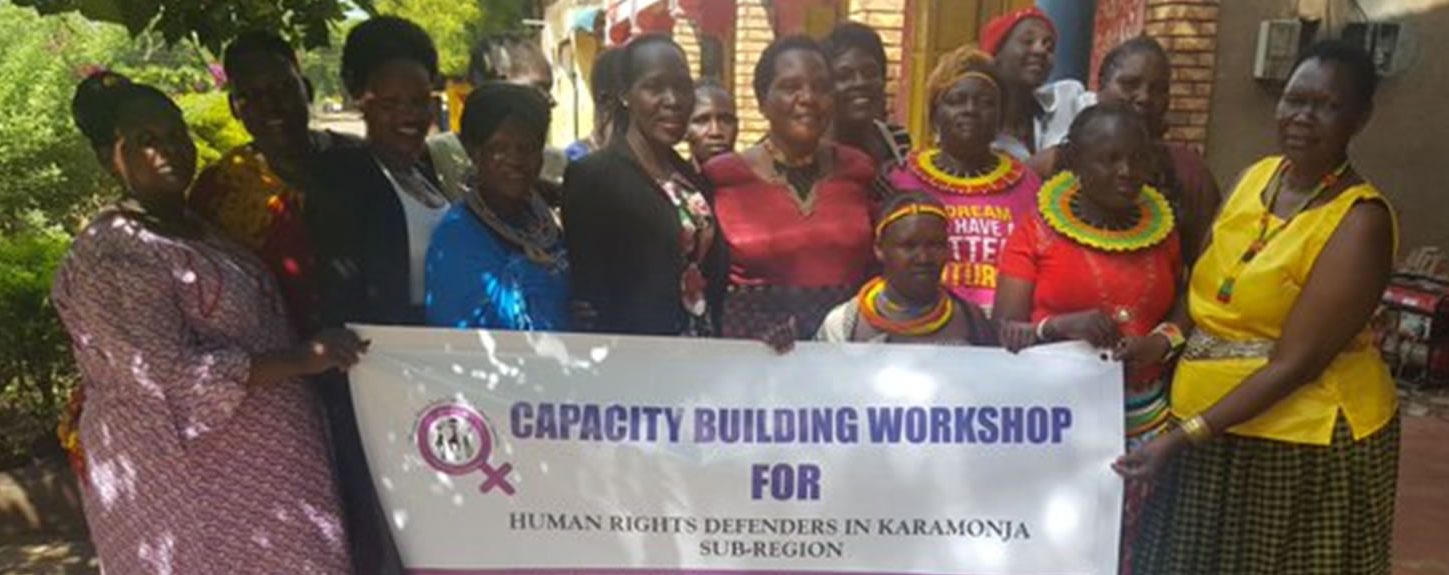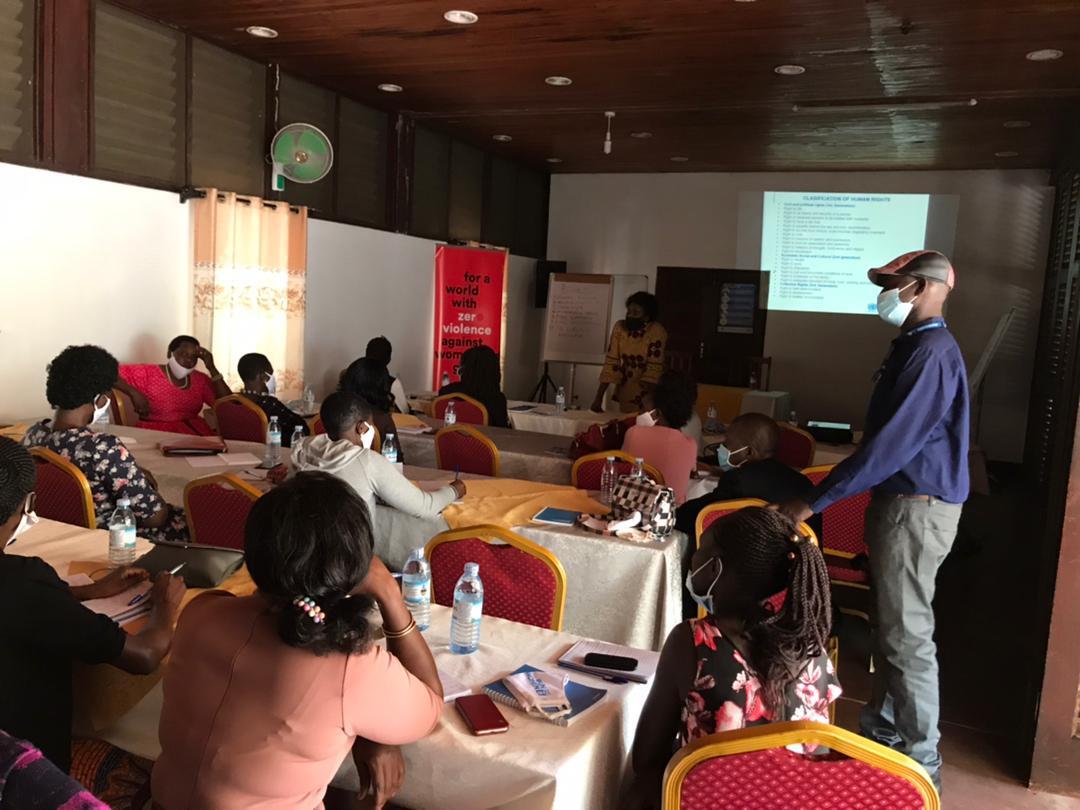On 22 July 2021, the Women Human Rights Defenders Network Uganda (WHRDN-U) convened a zoom coordination meeting for WHRDs based in Rwenzori region under the theme “Local Networking among WHRDs is crucial for supporting WHRDs at risk.” The meeting attracted over 18 women defenders who gathered in their physical locations from Kasese, Kabarole, Katwe, Bundibugyo, and Bulisa districts.
The coordination meeting aimed at improving the capacity of grass root regional WHRD networks to protect women human rights defenders at risk. It also provided a platform for women defenders to share their experiences of threats, fears and challenges faced in defending human rights work.
Women human rights defenders participating in the meeting had this to say about their experiences of threats, challenges, fears and attacks
- “Some people abuse us that If you failed to manage your own children whose child, do you think you will manage, why are you interfering with our culture.” Kyobutungi Maureen of Kabarole district.
- “Detention of WHRDs – ‘someone times you come in as a defender you are also arrested without even fair hearing.” Mawa Juliet Masika of Katwe district.
- “I have received threats of rape, office break ins, and telling me to reduce my voice or I will die because of defending rights of sex workers.” Rose Kahunde of Kasese district
For her part, Ms. Brenda Kugonza thanked women defenders for their resilience and commitment to defending human rights noting that women defenders from Rwenzori region worked on a wide range of areas- rights of sex workers, rights of indigenous people (Batwa), women’s rights, land rights, business and human rights, environmental rights and working to dismantle patriarchy moreover in extremely difficult contexts and circumstances. In her remarks however, Ms. Brenda Kugonza informed participants that throughout the period of Lockdown, WHRDN-U secretariat received reports showing the challenges faced by members of Rwenzori WHRDs Network including:
- Emotional blackmail
- Discrimination against women defenders by duty bearers
- Being branded as immoral women corrupting society.
- And their meetings/gatherings being dispersed by duty bearers.
Speaking at the meeting, Kabagenyi Peluce, the focal person concurred with Ms. Brenda’s report of the challenges they were facing and thanked WHRDNU for organizing the meeting to ensure that their pertinent issues were heard and addressed.
In her presentation concerning how to improve the local network in the region, Ms. Brenda Kugonza, of the WHRDN-U, encouraged women defenders to document incidences of attacks against women defenders noting that documenting brings visibility and legitimacy to the work and contributions of women human rights defenders. She further noted that documenting allows us to record our experiences as human rights defenders and as women that if there is no record of the violations inflicted upon women defenders, the violations will not be known by the public. By the end of the meeting, WHRDs demonstrated the ability to coordinate grass root WHRDs, document attacks, and report cases to secretariat, when they gave the following proposals regarding collaboration, coordination and documenting and reporting cases of attacks against WHRDs.
- They committed to opportunities of collaboration when they exchanged phone contacts. Members shared their phone numbers in the chat during the zoom meeting. They also suggested that they create a social media platform for the Rwenzori WHRDs Network.
- “Coordination can surely improve if only we can keep in touch with each other and our district focal persons.” said Jacklyn Bwenge of Kasese district.
- “Thank you, WHRDN-U, through the coordination meeting you will help provided a shared understanding of the violence women defenders face in our region.’’ Kabalisa Rhoda of Bundibugyo district
- ‘’We need to have forums like this to encourage mobilization of women defenders to come together leading to a smooth flow of information between secretariat and the region,’’ said Peninah Zaninka from Kisoro district.
- “In these meetings I get to know the sufferings of our sisters.” Peluce Kabagenyi of Rwenzori
The meeting also involved discussions on self-care and well-being. During the meeting, it was empathized that WHRDs need to take care of their mental and physical health through taking off time to rest and relax. Meeting as a Network for leisure activities like having dinner. Participants went ahead to discuss the toll of stress, trauma and social exclusion on their mental health as there is a lot of stigma faced at community level. ‘’This leads to risks such as mental breakdown and distress due to psychological torture.” Musoki Elizabeth of Kasese.
Members gathered in physical locations to attend the zoom meeting.








